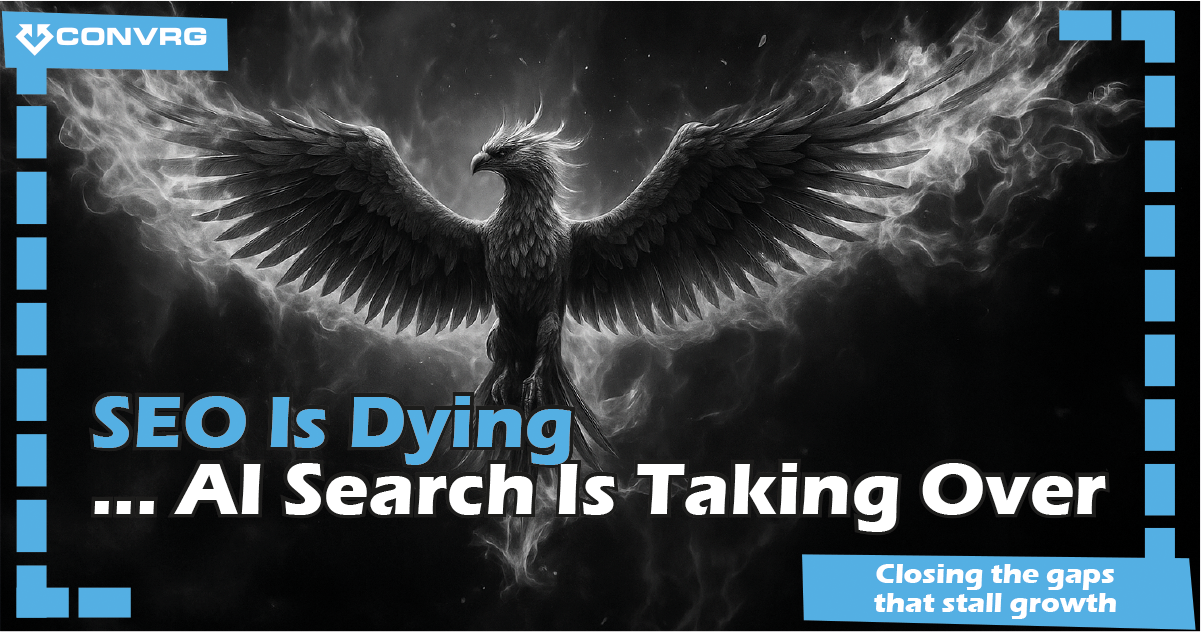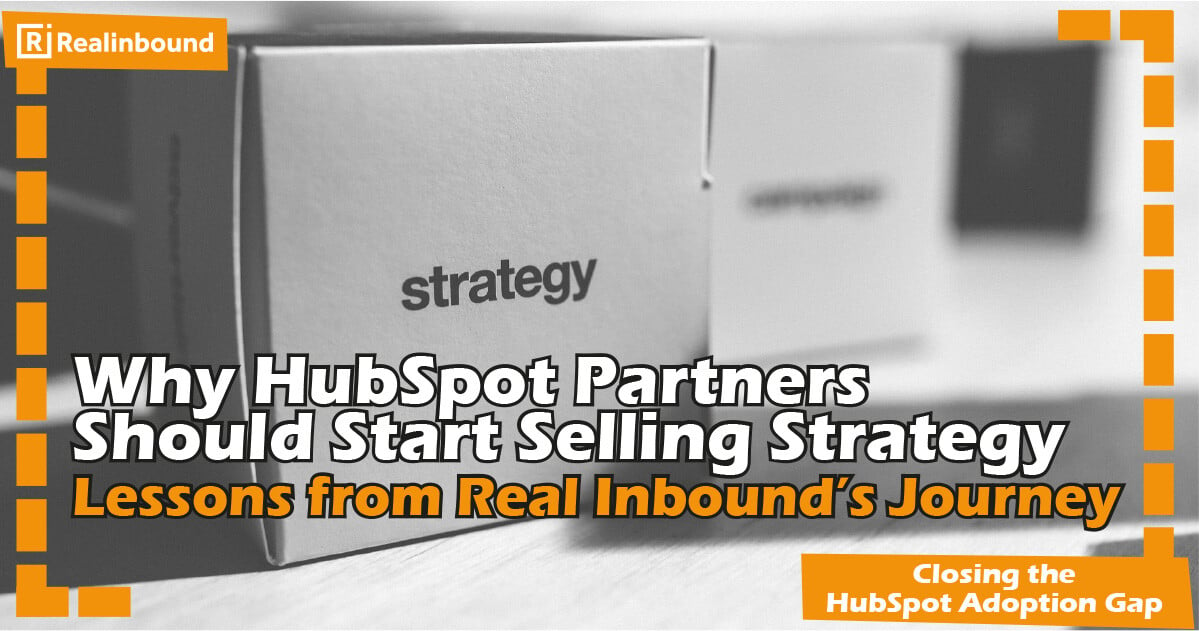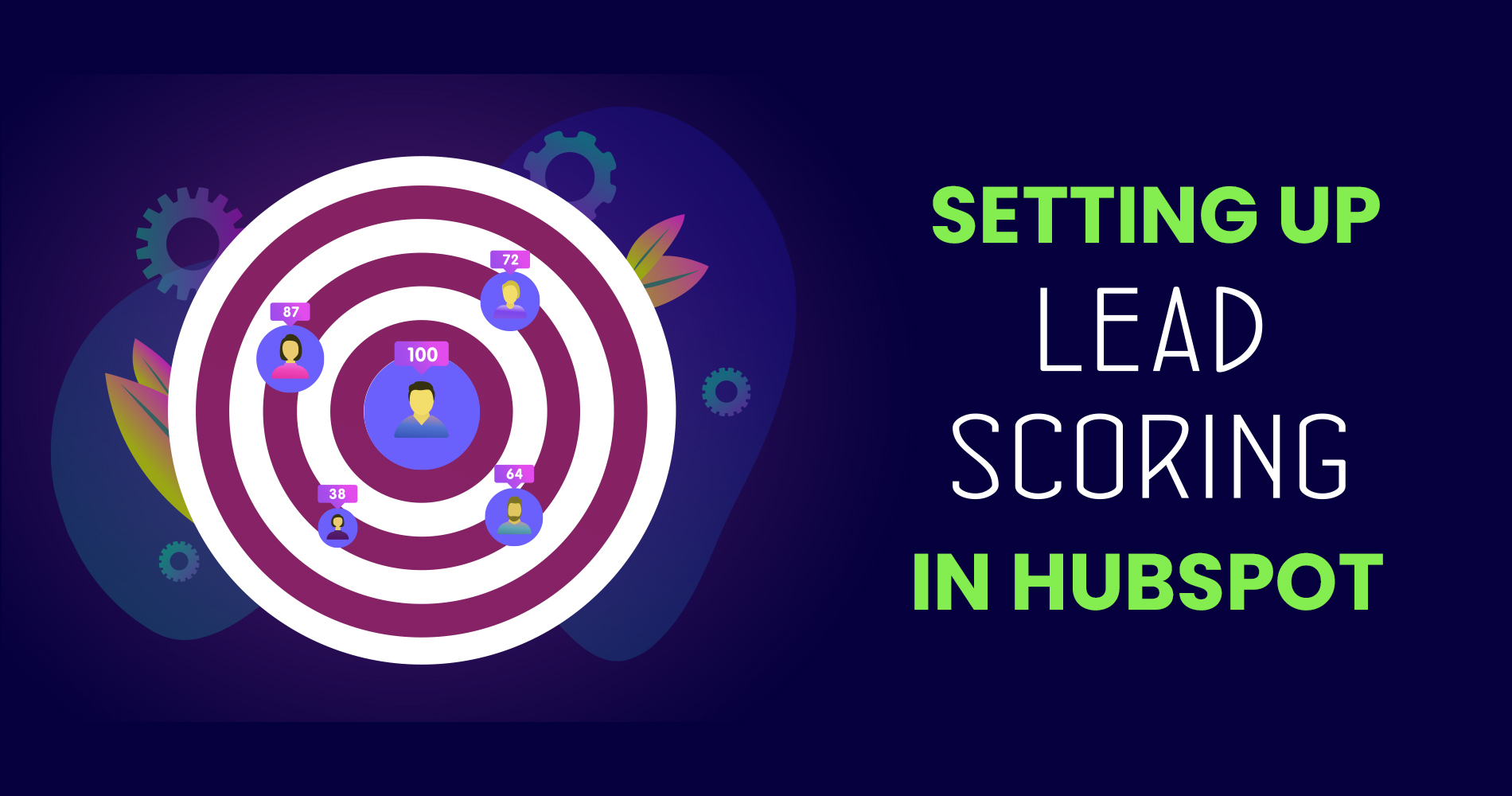The Death of SEO?
For more than twenty years, search engine optimisation (SEO) has been the workhorse of digital growth. If you wanted your business to be found online, you learned to play by Google’s rules. You researched keywords, optimised your website, built backlinks, and fought for a place on the first page.
And it worked. For most of the 2000s and 2010s, being good at SEO meant predictable growth. It meant inbound leads, online visibility, and credibility in your market.
But here’s the uncomfortable truth: those rules don’t work the same way anymore.
The entire landscape is shifting. Not because Google disappeared, but because the way people look for answers is fundamentally changing.
Today, customers aren’t just typing keywords into a search box. They’re asking questions out loud. They’re using AI assistants to generate reports, research vendors, and even shortlist suppliers. They’re getting answers - not links.
And that means the traffic, the visibility, and the trust that once came through traditional SEO are leaking away.
So yes - in the form we once knew it, SEO is dying.
But something bigger is taking its place.
How We Got Here
To understand what’s happening, let’s rewind.
In the early 2000s, Google became the front door of the internet. Every business fought for position in those “ten blue links”. The playbook was straightforward:
- Research the right keywords.
- Optimise your website with those keywords.
- Build as many backlinks as possible.
- Watch your rankings rise.
It wasn’t perfect, but it was logical. If you put in the work, you could climb the ladder.
Then, two big shifts changed the game.
First, mobile. Suddenly people were searching on the go. That introduced local search, voice search, and a huge focus on mobile-friendly content.
Second, snippets. Google began giving users direct answers at the top of the results page - “position zero”. Instead of sending traffic to your site, Google pulled your content and gave away the answer for free.
Even then, businesses adapted. They learned how to optimise for featured snippets, how to write FAQs, how to win voice search.
But what’s happening now is on another level.
Why SEO Is Losing Its Power
There are four big reasons traditional SEO is losing relevance.
- Clicks are disappearing.
Back in 2013, most searches resulted in a click to a website. Fast forward to today, and studies show more than 65% of searches end without a click. Users find their answer on the search page itself - or in an AI-generated result - and move on. - AI is becoming the new interface.
When someone has a question, they’re not just typing it into Google. They’re asking ChatGPT, Perplexity, Gemini, Claude, or even Microsoft Copilot. These tools don’t send people to a list of websites. They give direct, conversational answers. - The old playbook doesn’t apply.
Keyword density, backlink building, and endless blog posts aren’t what AI looks at. AI engines don’t rank keywords. They evaluate authority, context, and how well your content answers intent. - Trust is shifting.
Executives used to see SEO traffic reports as proof of digital progress. But as traffic from search engines becomes less reliable, those numbers feel hollow. Leaders are asking harder questions: “What’s the outcome of this? Where are the leads?”
The bottom line: SEO isn’t dead, but it’s no longer enough.
The Rise of AI Search
So what’s replacing SEO?
The shift is happening in two directions:
Answer Engines (AEO) – “Be found in AI search.”(Google, Bing, Perplexity — AI built into search engines)
Think of voice assistants, featured snippets, and AI tools that give you one direct answer. These engines don’t list ten links - they provide the answer themselves. If your content isn’t optimised to be that answer, you’re invisible.
Generative Engines (GEO) - “Be found inside AI assistants.”(ChatGPT, Gemini, Claude — direct AI queries)
This is the newer and even bigger shift. Generative AI doesn’t just show answers - it creates them. ChatGPT, Gemini, and Perplexity pull knowledge from across the web and generate new responses.
In Simple terms
- AEO is like AI Google.
Optimising so your business shows up when people search in Google SGE, Bing Copilot, or Perplexity. - GEO is like AI ChatGPT.
Optimising so your business shows up when people ask ChatGPT, Gemini, or Claude
“AEO = AI search engines. GEO = AI assistants.”
If your business isn’t represented in the sources they trust, you won’t appear in their output.
Together, AEO and GEO represent a total rewrite of how search visibility works. This isn’t a tweak. It’s a paradigm shift.
What This Means for Growth Leaders
For COOs, Heads of Growth, and senior leadership, this isn’t a technical debate. It’s a strategic one.
Here’s what you need to know:
- Old SEO metrics are misleading.
Ranking for a keyword doesn’t guarantee visibility if AI answers are swallowing the clicks. - Content strategy must evolve.
Blogs filled with keywords won’t cut it. Structured, authoritative, well-cited content wins. - Trust signals are vital.
AI models lean on content they consider credible. That means you need demonstrable authority: research, case studies, thought leadership. - Inaction is dangerous.
If you don’t adapt, competitors who do will win by default. Imagine spending years building a pipeline through SEO, only to have AI engines reroute your customers somewhere else.
This isn’t a marketing issue anymore. It’s a board-level risk.
The Leadership Gap
Here’s the reality: most leadership teams are still looking at SEO reports and thinking everything is fine. They see website traffic holding steady, or even growing, and assume all is well.
But traffic is a lagging indicator. By the time your traffic falls off a cliff, your competitors will already have captured visibility in AI-powered search.
Leaders need to start asking new questions:
- How visible are we in AI-generated answers?
- Are we optimised for snippets, FAQs, and structured content?
- Do AI assistants know who we are and what we stand for?
- Are we being cited in generative results?
This is no longer about tactical keyword battles. It’s about visibility in the next era of digital growth.
How to Adapt (Without Overcomplicating It)
The good news? You don’t need to throw out everything you’ve built. But you do need to evolve.
Here are the practical steps:
- Audit your visibility.
Don’t just measure keyword rankings. Look at where you appear in AI-generated results. Are you in featured snippets? Are AI assistants citing you? - Structure your content.
Use FAQs, schema markup, and structured data. Write clear, question-led content. Make it easy for AI to pull your answers. - Build authority.
Publish research. Create case studies. Share expert insights. These trust signals make it more likely that AI will use your content. - Pilot AEO and GEO strategies.
Test optimising for featured snippets. Track your brand mentions in AI tools. Start experimenting with generative engine visibility. - Measure outcomes, not vanity.
Don’t fall for “we ranked for 100 more keywords this month”. Focus on pipeline impact. Did visibility in AI search generate leads? Did it influence deals?
Why This Matters Now
This isn’t a slow shift. It’s already happening.
- Google’s Search Generative Experience is live in multiple markets.
- Perplexity has millions of users and is growing rapidly.
- Executives are already asking ChatGPT for vendor comparisons instead of Googling.
If you wait until SEO traffic drops to zero, it’ll be too late.
Remember what happened with mobile search? Businesses that ignored it were wiped out. The same is happening now with AI search.
The Bigger Search Picture
This isn’t just about marketing. It’s about strategy.
AI search changes the customer journey. It changes how buyers research, how they shortlist, and how they decide.
That means every team - marketing, sales, service, leadership - needs to understand what’s happening.
Because when customers stop finding you, growth stalls. And no CRM dashboard will hide that.
SEO Isn’t Dead - But It’s Different
So, is SEO dying?
Not completely. But it’s changing so radically that relying on the old playbook is a dangerous bet.
The future belongs to businesses that:
- Treat SEO as the foundation, not the finish line.
- Invest in AEO and GEO to stay visible in AI-powered search.
- Lead the change from the top, not delegate it to a marketing afterthought.
This isn’t about keeping up with a trend. It’s about staying relevant in a world where your buyers trust AI to make decisions.
The question is: will you be one of the businesses leading this shift, or one of the ones left behind?
Unsure where you stand, don’t guess
We’ve built a SEO/AEO/GEO Audit designed for leaders. In just a few days, you’ll see:
- Where you show up - and where you don’t.
- How AI engines are using (or ignoring) your content.
- The quick fixes that will make you visible again.
Speak to our SEO/AEO/GEO team today.
AI search is already here. The only question is whether your business is ready for it.




![What [AI Search]… Really Means for Your Business](https://convrg.agency/hubfs/What%20%5BAI%20Search%5D...%20Really%20Means%20for%20Your%20Business.png)
